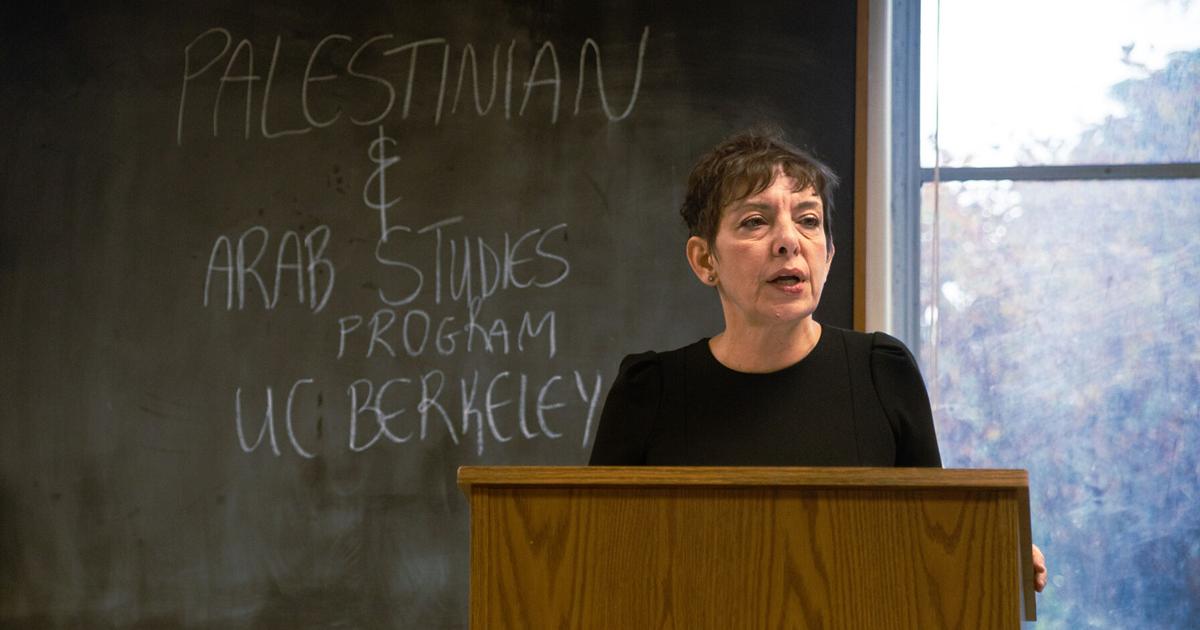As rain poured outside Monday evening, students, faculty and community members gathered in a small classroom in Dwinelle Hall for UCSB associate professor of history Sherene Seikaly’s lecture “Palestine is Shrinking, Palestine is Everywhere.”
The event, hosted by campus’s Palestinian and Arab Studies, or PAS, program, was free and open to the public. It aimed to explore the “war, destruction and genocide in Gaza” and its broader global and academic implications, according to PAS program manager Fadi Kafeety.
“This was a very multifaceted and complex event detailing both the current realities that Palestinians are facing and its impact across the globe,” Kafeety said. “But also there have been discussions of (and) questions of academic freedom and repression inside U.S. college campuses, the war, destruction and genocide in Gaza and the increasing and growing sympathies and solidarities across the world that have sprung up in relation to what’s happening inside Palestine.”
The current demand, from campus and abroad, to better understand Palestine’s history and modern-day issues inspired the event, which was sponsored by the Center for Middle Eastern Studies and the department of history, according to Kafeety.
Seikaly, the director of the Center for Middle Eastern Studies at UCSB, is one of “the foremost and preeminent scholars on the question of Palestine,” Kafeety said, noting that Seikaly serves as “editor for many journals and boards and is an extremely renowned scholar at the global level.”
During her talk, Seikaly shared many firsthand accounts from Gaza, vividly detailing the realities of families who live through bombardment, displacement and starvation. Seikaly centered her speech around the idea that the crisis extends far beyond Palestine itself, heavily shaping global politics, economies and institutions.
“For a time, many thought that these attacks on academic freedom and free speech would remain safely confined to a distant, easily dismissed, so-called conflict in an unspecified place in the Middle East, but Palestine is everywhere,” Seikaly said. “The bipartisan repression of free speech in Palestine has today matured into a naked attack on political dissent and university independence, stripping people of protected rights with the ease, ability and speed that we are now witnessing is a threat to all of us.”
Reflecting on the event and the future of the PAS program, Kafeety said he hopes to hold more events that reach a large audience with varying levels of knowledge regarding Palestine and to foster community engagement with such topics.
Kafeety credits Berkeley’s “history and tradition of free speech” for enabling him to pursue his mission, noting that these events are free and open to the public.
“It’s very important for us to reach a very wide audience, going beyond the echo chambers of just having people who are familiar with the topic attending the same lectures,” Kafeety said.

